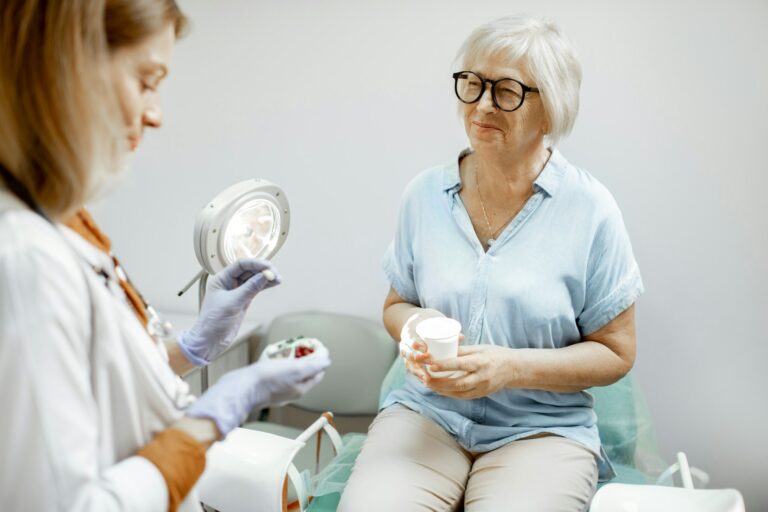
What is Hormone Replacement Therapy (HRT)?
Hormone replacement therapy (HRT) is a medical treatment designed to supplement the body with hormones that it no longer produces in adequate amounts, particularly during menopause.
This therapy aims to alleviate various symptoms associated with hormonal imbalances, primarily experienced during the transitional phase of menopause.
HRT is widely used to manage menopausal symptoms such as hot flashes, night sweats, mood swings, and vaginal dryness.
Additionally, it plays a crucial role in preventing osteoporosis, a condition characterized by weakened bones and an increased risk of fractures, which becomes more prevalent post-menopause.
HRT can be administered in several forms, including:
Tablets: Oral medications that are taken daily.
Patches: Adhesive patches applied to the skin that release hormones into the bloodstream.
Creams and Gels: Topical applications that can be rubbed onto the skin for absorption.
Injections: Administered by a healthcare provider for quick absorption.
Understanding Hormone Imbalance
What is Hormone Imbalance?
Hormonal imbalance occurs when the levels of hormones in the body are too high or too low, leading to various physical and emotional symptoms. In women, this imbalance is often most pronounced during menopause, when estrogen and progesterone levels decline significantly.
Common symptoms of hormonal imbalance include:
Hot flashes and night sweats
Vaginal dryness and discomfort during intercourse
Mood swings, anxiety, or depression
Fatigue and sleep disturbances
Hormonal imbalances can also be caused by factors beyond menopause, such as thyroid disorders, polycystic ovary syndrome (PCOS), and lifestyle factors like stress and poor diet. HRT can effectively restore hormonal balance and alleviate these symptoms.

Benefits and Risks of HRT
Benefits of HRT
HRT offers several advantages, particularly for women experiencing menopause. Key benefits include:
Alleviation of Menopausal Symptoms: HRT effectively reduces hot flashes, night sweats, and vaginal dryness, improving the quality of life for many women.
Bone Health: By replenishing estrogen levels, HRT can help maintain bone density and reduce the risk of osteoporosis and fractures.
Cardiovascular Health: Some studies suggest that HRT may lower the risk of heart disease in women if started at the onset of menopause.
Improved Mood and Cognitive Function: HRT may help stabilize mood swings and improve cognitive function, reducing feelings of depression and anxiety.
Risks of HRT
While HRT can be beneficial, it is not without risks. Potential risks associated with HRT include:
Increased Risk of Blood Clots: HRT can elevate the risk of thromboembolic events, such as deep vein thrombosis (DVT) and pulmonary embolism (PE).
Breast and Endometrial Cancer: Long-term use of HRT, particularly combined estrogen and progestin therapy, may increase the risk of breast cancer and endometrial cancer.
Gallbladder Disease: HRT can also increase the risk of gallstones and gallbladder-related complications.
Cardiovascular Risks: There is a potential risk for heart disease, particularly in women who begin HRT later in life.

Bioidentical Hormones: A Natural Approach
What are Bioidentical Hormones?
Bioidentical hormones are synthesized hormones that have the same chemical structure as those produced by the human body. This approach aims to provide a more natural alternative to traditional hormone therapy.
Bioidentical hormone therapy (BHRT) is often used to address menopausal symptoms, including hot flashes, mood swings, and vaginal dryness. Some individuals prefer BHRT because it is perceived to be more compatible with the body’s natural processes.
Benefits of Bioidentical Hormones
Customizable Dosing: BHRT allows for individualized treatment plans tailored to a person’s specific hormonal needs.
Fewer Side Effects: Many patients report fewer side effects with bioidentical hormones compared to traditional HRT.
Natural Origin: BHRT is derived from plant sources, which some individuals prefer over synthetic hormones.
Supplements for Hormone Balance
Essential Supplements
Certain supplements can aid in supporting hormone balance, particularly during menopause. These include:
Omega-3 Fatty Acids: Found in fish oil and flaxseed, omega-3s can help reduce inflammation and alleviate symptoms of hormone imbalance.
Vitamin D: Essential for bone health and hormone regulation, vitamin D can support overall hormonal balance.
Magnesium: This mineral plays a role in hormone production and can help manage symptoms of PMS and menopause.
Probiotics: Gut health is closely linked to hormone regulation; probiotics can improve gut flora, supporting hormonal balance.
Consultation with Healthcare Providers
Before starting any supplements, it is crucial to consult with a healthcare provider to ensure they are appropriate for your individual health needs. At Rejuvenate HRT, our team of experts can ensure that you have all the detailed information that you need about this treatment plan.

Hormone Therapy for Men
Testosterone Replacement Therapy
Hormone therapy isn’t limited to women; men can also experience hormonal imbalances, particularly low testosterone levels. Testosterone replacement therapy (TRT) can help alleviate symptoms such as:
Decreased libido
Fatigue and low energy levels
Weight gain and muscle loss
However, men considering TRT should also be aware of potential risks, such as increased risk of prostate cancer and cardiovascular issues.
Customizing Your HRT Plan
Individualized Treatment Plans
HRT is not one-size-fits-all; treatment plans can be tailored to meet individual needs and health statuses. Key considerations include:
Personal Health History: Previous health issues, family medical history, and personal preferences should all be considered when developing an HRT plan.
Types of Hormones Used: The choice between bioidentical and synthetic hormones can affect side effects and efficacy.

Lifestyle Changes for Hormone Balance
Supporting Hormonal Health
In addition to HRT, certain lifestyle changes can significantly impact hormone balance:
Healthy Diet: A diet rich in whole foods, healthy fats, and lean proteins can support hormonal health. Incorporate plenty of fruits, vegetables, whole grains, and sources of omega-3 fatty acids.
Regular Exercise: Engaging in regular physical activity can help maintain a healthy weight and regulate hormone levels. Aim for a combination of cardiovascular exercise and strength training.
Stress Management: High stress levels can lead to hormonal imbalances. Techniques such as yoga, meditation, and deep breathing can help manage stress.
Adequate Sleep: Prioritizing good sleep hygiene can help regulate hormone levels. Aim for 7-9 hours of quality sleep per night.
Monitoring and Adjusting HRT
Regular Check-Ups
Regular monitoring is crucial to ensure that HRT remains safe and effective. Schedule regular follow-up appointments with your healthcare provider to:
Monitor Hormone Levels: Regular blood tests can track hormone levels and help assess the effectiveness of therapy.
Adjust Treatment: If side effects occur or symptoms persist, adjustments to the treatment plan may be necessary.
Reporting Side Effects
It’s essential to communicate openly with your healthcare provider about any side effects or concerns related to HRT. Prompt reporting can help address issues early and ensure the best possible outcomes.

Debunking Common Myths about HRT
Clarifying Misconceptions
Several myths and misconceptions surround HRT that can deter individuals from seeking appropriate treatment:
HRT is Only for Women: While HRT is commonly associated with menopausal women, men also benefit from hormone therapy for testosterone deficiencies.
HRT is a Cure-All: HRT can alleviate symptoms but is not a standalone solution. Lifestyle changes also play a significant role in managing hormonal health.
All HRT is Dangerous: While HRT does carry risks, it can be safe and effective when prescribed and monitored by a qualified healthcare provider.
The Importance of Open Communication
Building Trust with Healthcare Providers
Open communication with your healthcare provider is vital for effective HRT. It’s essential to discuss:
Concerns and Questions: Don’t hesitate to ask questions or express concerns about HRT and its potential impacts on your health.
Monitoring Progress: Regular discussions about your treatment plan, including any changes in symptoms or side effects, are essential for ongoing care.

Frequently Asked Questions
Is there a natural HRT?
Yes, bioidentical hormone therapy is often considered a natural alternative to traditional HRT.
What is the difference between HRT and estrogen?
HRT is a broader term that encompasses any treatment designed to replace hormones, while estrogen is one specific hormone that may be replaced during HRT.
What is the best natural estrogen replacement?
Some natural options include phytoestrogens found in foods like soy and flaxseeds, but it’s essential to consult a healthcare provider for personalized recommendations.
HRT Supplements for Effective Hormone Balance Conclusion
Hormone Replacement Therapy (HRT) can be an effective treatment for managing hormonal imbalances, particularly during menopause.
If you want to know if this is the right plan of action for you, make sure to schedule a consultation with one of our experts here are Rejuvenate HRT!

